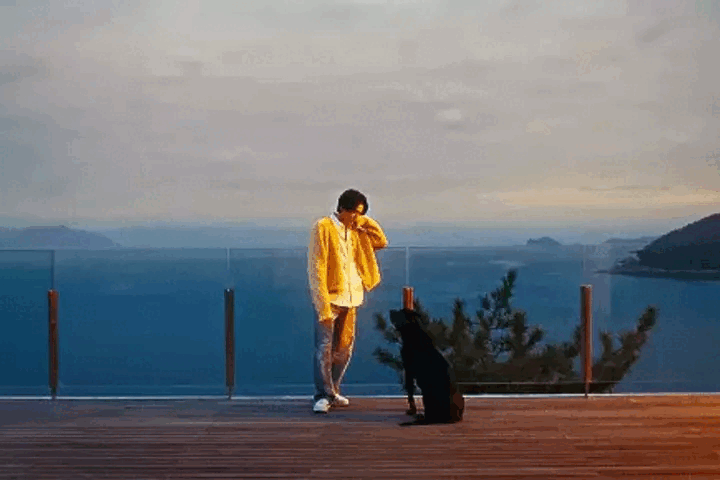
I highly recommend reading my analysis of his first two mixtapes (Agust D and D-2) before moving forward so you get all the references in “D-Day” by Agust D.
Agust D’s first official album, third solo project, and the final part of his music trilogy, “D-Day” is all about liberation. Liberation from external social expectations as well as his internal struggles.
While the first mixtape “Agust D” focused on his painful past and the second mixtape “D-2” focused on his painful present, “D-Day” is about acknowledging, accepting, and moving past the pain.
It’s about breaking free from the chokehold the hurts of the past and the anxiety of the future have on you.
As the lyrics say, it’s about growing into something beautiful despite the not-so-ideal circumstances, like a lotus blooms in the mud.

K-pop columnist Jenna Guillaume describes the trilogy perfectly as she writes for Junkee:
If Agust D captured a very early 20s me-against-the-world feeling, D-2 is about what it means to be of the world. It records that transitional period of your mid-20s when you’re growing up and figuring out how to be an actual person, desperately trying to find a way to reconcile the dreams and ideals of your childhood with the reality of your life and the things you can’t control.
D-Day, then, is the end point of this journey — moving into your 30s and becoming a fully-fledged adult, with more understanding of yourself and the world. There’s more pain, perhaps, but also more healing.
Ultimately, if Agust D sought freedom from the world and from other people’s expectations and D-2 saw Yoon-gi searching for freedom from himself, D-Day IS that freedom.
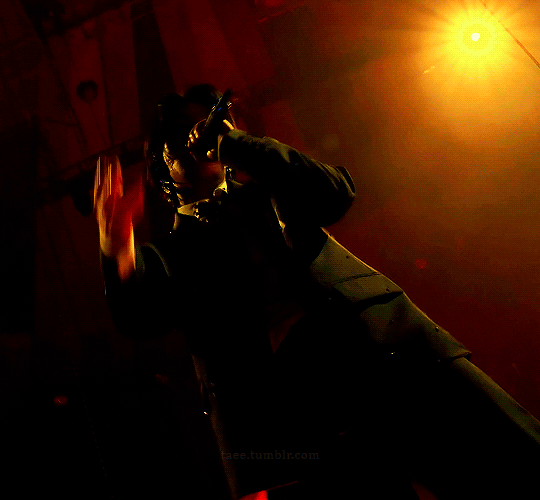
The songs in “D-Day” explore the idea of freedom by questioning and wanting to break free of the shackles that the world and often we ourselves have placed on us.
In the first track, D-Day, Agust D talks about freeing himself from the pain that he identified with and carried for so long, so much so that both of his earlier mixtapes centered on those themes.
It’s an invitation, both for himself and us as the listeners, to stop wallowing in regret or fear. It’s time to step out of the victim mentality and confront what’s holding you back so you can actually move past it.
As the lyrics say:
- Don’t rip up old wounds for nothing only to make your scars bigger.
- Don’t regret the past or fear the future. What are you afraid of when the past has gone and the future is yet to come?
- What defines you? Break the limit.
- If you can’t avoid it, just fully suffer through it.
- The lotus blooms gloriously even in muddy water.
- From today, we shall move past the maze and start a new beginning.

He goes grand with the liberation theme in the second track, Haegeum, which literally translates to: the lifting of a ban/prohibition or freeing what’s forbidden.
But instead of just wishing for freedom, he actively questions the nature of it.
As the lyrics say, “If the freedom to express whatever one wants becomes the reason for someone’s death, would you still consider it freedom?”
Similar to his earlier track “Strange” from the previous mixtape “D-2”, he wonders if we really have any freedom in today’s internet age.
As the lyrics say, “A flood of information prohibits the freedom of imagination and wants to have our thoughts standardized.”

It’s the same sentiment fellow BTS member RM conveyed in Strange: We aren’t really free to develop our own taste considering how our choices are controlled by the algorithm. We decide what to watch and listen to based on “recommendations” and our beliefs are shaped by what is valued by the people around us.
Can you really form an honest opinion if you’re only exposed to views in your online echo chamber? Is this really the freedom of thought?
Agust D also considers the other side of the coin. Maybe it’s not just the society binding us, we ourselves are also holding us back.
Exploring the topic further, and now venturing into a bold territory, he starts criticizing the very systems he benefits from. Ironically, he’s using the same systems to criticize them!
Agust D says we’re slaves to YouTube and capitalism but he conveys the message through a YouTube video and an album for people to buy!
He then sang the song during 28 fully sold-out concerts all over the world, which went on to set the record for the highest-grossing concerts by a Korean soloist in US history. He also became the first rapper to generate about $3 million from a single arena concert in the US.

Beyond his solo activities, he’s also a part of BTS, one of the most successful music groups in the world, that has been putting out content non-stop since its debut. Variety shows, funny behind-the-scenes, dance practice videos, vlogs, live streams, and documentaries — there’s more BTS content out there than you can watch in a lifetime.
As another Medium writer, Ana Clara Ribeiro writes, would you call this hypocrisy or irony? BTS (and by extension Min Yoongi) plays a huge role in this information overload.
So when he raps, “Would it be possible that we did it ourselves?” and “I hope we don’t get swept away by the tsunami of information,” perhaps he is acknowledging that he too is a part of the shitty system, that he too is responsible.
He revisits this concept in the third track, Huh?!, featuring fellow BTS member J-Hope, saying, “Countless news articles and gossip are the villains in this age of information.”
After exploring the possibility (or lack thereof) of freeing ourselves from the shackles of the world, Agust D turns inwards with Amygdala, wanting to free himself from his trauma.
In one of the most powerful songs, not just in the “D-Day” album, but in the entire industry, Agust D rips open his heart, pours out all the pain, and begs to be set free from the traumatic memories replaying in his head nonstop.

I’ve written an entire article diving deeper into the song and its message (see below), but to sum up, he pleads from the bottom of his heart to be released from this seemingly never-ending pain.
The song talks about and visually highlights (through the music video) how excruciatingly painful it can be to constantly replay and remain trapped in the worst moments of your life. It shows how futile it is to try to escape your pain and how the only way to truly free yourself is to actually deal with it.
Continuing with the theme of memories, but now exploring them on a lighter note, the fifth track in the “D-Day” mixtape, SDL, talks about our tendency to glamorize memories.
This song is not an outright cry for freedom like Haegeum and Amygdala, rather it questions the nature of memories we feel so attached to. What are you really missing? The person? The good ol’ days? The past self? Or just the glamorized version of events in your head?

Here, Agust D talks about regrets and lingering feelings with an undercurrent of questioning just why we feel the need to keep going back to the past.
SDL also examines our ideas around attachment, leading smoothly into the next track, People Pt. 2, which is a full-blown exploration of our need for (and the lack of) companionship.
As the now-famous line goes, “They say life is a struggle between resistance and submission. I say it’s a struggle against loneliness.”
But why is it a struggle?
Analyzing how our past traumas and flawed thinking tie us down psychologically, he says he wasn’t loved enough as a kid so now he builds walls around his heart. He says he wants a deep connection but fears being abandoned.
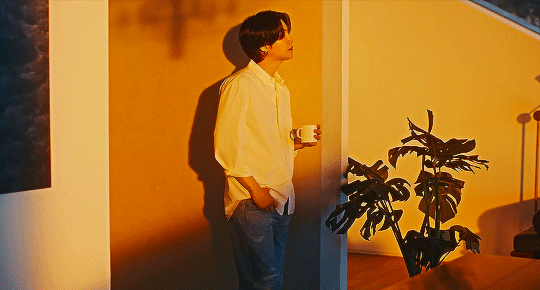
In SDL, he says, “We who used to sing forever no longer exist.” He follows up on that theme in People Pt. 2, saying, Forever is a sandcastle that collapses even by gentle waves.”
The song also touches on the massive role fear plays in our decision-making, saying, the fear of loss is worse than the loss itself. It fits nicely with the album’s overarching theme of seeking liberation, showing how our past defines our present and the future, so we aren’t really “free” to live as we truly desire.
This is also a subtle callback to the idea he explored in Haegeum: Perhaps we are the ones holding us back.
As we move further into the tracklist, the idea of liberation becomes less “in-your-face” as Agust D dives deeper into just what makes freedom so difficult to achieve. In Amygala, SDL, and People Pt. 2, he analyzes the inherent complexity of being human, which inevitably makes it harder to be as “free” as we’d like.
He flips the perspective in the next track, Polar Night, focusing on the complexity of the society and the problematic systems running it. Can you really be free in an unjust, hypocritical, and dog-eat-dog world?

Similar to his approach toward mental health discussions in previous mixtapes, here Agust D openly talks about topics we’d rather pretend don’t exist.
Injustice, polarization, biased decisions, sensationalized news, violence, and anonymous online hate with damaging consequences but zero accountability — he tackles it all, calling the world dirty and questioning if anyone (including himself) can be considered clean (aka free from these problematic systems).
The song, aptly titled Polar Night, seems the most “hopeless” like the darkest point of the night, but Agust D brings back the glimmer of hope through subsequent songs, starting with another aptly titled track, Interlude: Dawn.
It has no lyrics, but it’s a musical masterpiece showing the gradual transition from a darker, heavier feeling to a lighter, more hopeful one.

If you enjoy instrumental, soundtrack-like music, I highly recommend you check it out after reading my interpretation of why it actually sounds like dawn after a dark night.
The instrumental interlude leads nicely into the next track, Snooze, which features music from the renowned Japanese composer and pianist Ryuichi Sakamoto, who inspired Yoongi to start making music as a kid.
In Snooze, Agust D revisits several themes from other songs in his discography, now in the form of advice and words of comfort for other artists (or anyone really) wanting to pursue their dreams.
First, keeping in line with the “D-Day” album’s liberation theme, he calls back to his line from The Last (a song from his first mixtape, “Agust D”): “Your success will become a leash and a shackle.”
Yoongi has always compared his ambition or greed to something that ties him up, holds him back, and turns him into a monster. It’s interesting though that he doesn’t mention wanting to be free from it.

It makes me wonder, if the cost of success was feeling trapped (as he has alluded to in People, his song from “D-2” and Break the Silence, a BTS documentary), would you still choose it?
Agust D also revisits fear, but this time, he’s encouraging us to move past it.
In several songs, interviews, and speeches, Yoongi has expressed a fear of falling. For example, in Interlude: Shadow, his song as BTS SUGA, he said, “I’m afraid, I’m scared of flying high. No one told me how lonely it is here, that my leap can be my fall.”
Now he’s confronting the fear while comforting both himself and us, saying “If you’re afraid of falling, I’ll gladly catch you.”
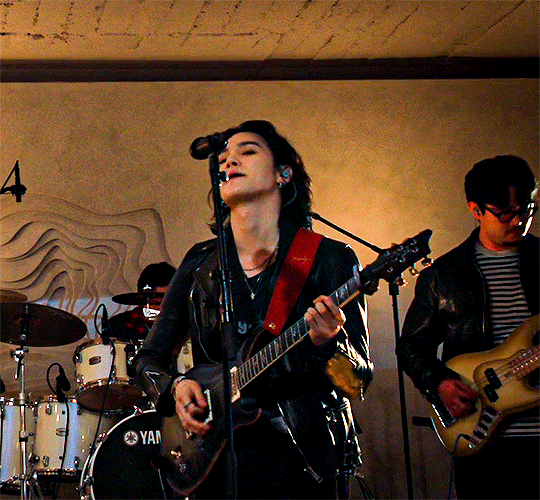
Agust D also revisits the concept of polarization, of struggling to live in a dog-eat-dog world that he presented in Polar Night and Strange. He raps, “Your peers are your enemies. When I fail to kill someone else, I become the one to die.”
Another major callback is his prayer-like verse from So Far Away (a song from his first mixtape “Agust D”), where he wishes (himself and) you well, saying things like I hope you bloom after the hardships, even if your beginning is humble, may your future be prosperous, etc.
In contrast to Polar Night and Strange which seemed to suggest we’re so trapped in the system that it’s impossible to break free, in Snooze he paints a more hopeful picture. I mean, he literally says “It’s all gonna be alright” 16 times back-to-back.
While his first mixtape “Agust D” initially denied and then wallowed in his pain and the second mixtape “D-2” further highlighted his anxieties, “D-Day” is moving towards healing by giving himself and listeners the freedom to fully express, accept, and then get over the emotions.
In People Pt. 2, he says, “When tears burst, you don’t have to hold them back (It’s okay to cry).”
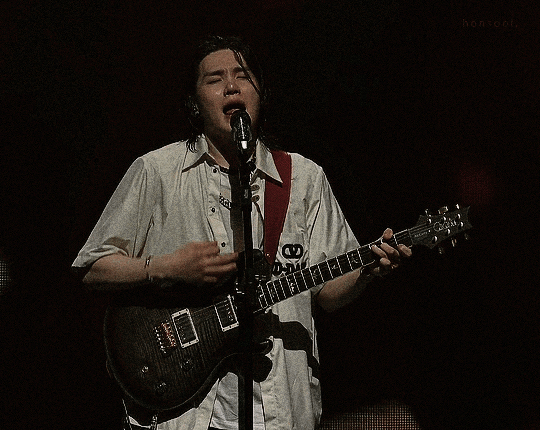
Then in Snooze, he says:
- It’s okay to feel overwhelmed, it’s okay to take a brief rest.
- Cry out loud, when you come to hate the world.
- It’s okay to let out a big sigh and yell.
- It’s okay, when everything passes, it’ll all become a memory and a lesson.
With the last track on the “D-Day” mixtape, Life Goes On, he wraps up this journey with a melodic bow, leaning deeper into the acceptance we briefly glimpsed in the “D-2” mixtape.
He revisits all the themes, talking about his fear, being abandoned/separated, changing times and people, memories, and his 10-year career in the industry. He ties it all together with a simple message: things happen, life goes on.

Coming full circle with the ideas he presented in the first track, D-Day, Life Goes On has an undercurrent of “Yeah, things suck sometimes, but there’s no point ruminating and holding yourself back out of fear. What happened, happened. You can’t change it. Life goes on even after the worst possible things happen. You heal with time.”
Continuing with the “time” motif, he compares time to a wave that will flow however it wants and eventually wash everything away.
There’s a bigger feeling of acceptance, of refusing to needlessly fight against things out of one’s control. He, and with him, we, find the ultimate freedom is to go with the flow, to move with the natural rhythm of life.
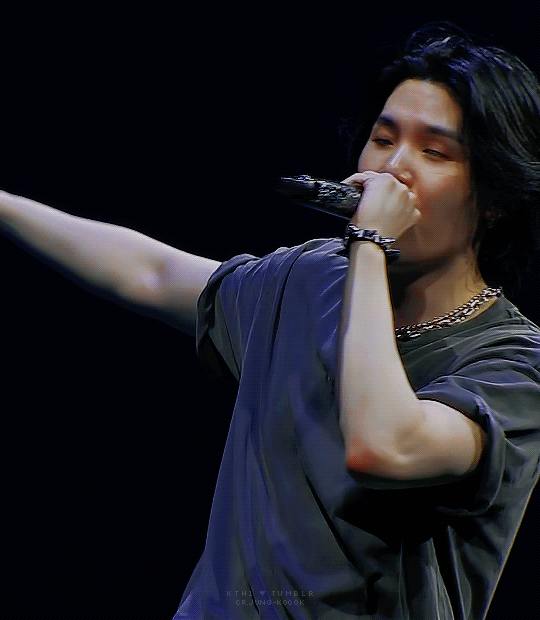
As the K-pop writer Guillaume beautifully describes,
D-Day presents…a cathartic conclusion to an emotional journey. The world remains hard, pain and problems persist — and yet within that, you can find yourself. You can find freedom.

If you’ve made it this far and enjoyed my work, consider supporting me to make more of it! It helps keep the creative cycle going.
You come across something that touches you and changes your life, so you create beautiful art reflecting that. It inspires someone else and the cycle of creativity continues. Be a part of it!
Leave a Reply